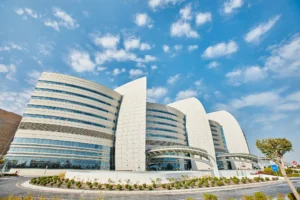Thailand’s medical tourism program has resumed, according to the Thailand Centre for Covid-19 Situation Administration. Hospitals and wellness resorts across the country are hoping to attract medical and wellness tourist back into the country, whilst making sure that this is done as safely as possible.
Prior to COVID-19, Thailand had a thriving medical tourism industry, ranking in the top five destinations for earning medical tourism revenues. International spending on medical tourism services increased from $2.4 billion to $11 billion between 2000 and 2017, reflecting the growing popularity of Thailand as a destination for patients to seek medical treatment.
The COVID-19 pandemic brought an abrupt halt to medical and wellness tourism in Thailand, severely squeezing the business of the country’s top hospitals, such as Bumrungrad International Hospital that helped birth the medical tourism industry in Thailand. More than fifty percent of their patients were international and constituted more than two-thirds of their revenue.
Thailand has one of the lowest numbers in COVID-19 infections and deaths in the world so far – a total of 3746 cases and 59 deaths at the time of writing. Furthermore, 98% of the patients have recovered.
During the pandemic, Thailand public health authorities have taken active steps to ensure the nation’s health system is ready to begin receiving medical tourists when borders reopen. Global Healthcare Accreditation (GHA) awarded the world’s first Certification of Conformance with COVID-19 Guidelines for Medical Travel Programs to Bumrungrad International Hospital, one of the top hospitals in Thailand for medical tourists.
A global study found that 82% of Thais are very confident about the country reopening for tourism and that tourists from Hong Kong, Singapore, Philippines, Indonesia, India and the Middle East are keen for the borders to reopen.
International flights into some of Thailand’s airports have been closed since April, but there are signs that more international flights could be opening soon. Outside of the capital, four airports are being considered for resuming international flights, including Koh Samui, U-Tapao, Chiang Mai and Phuket.
Thailand Travel Regulations
Timing requirements
Applications for medical travel must be completed and uploaded at least 15 working days before the intended date of travel, which will then be reviewed by the Royal Thai Embassy or Consulates-General.
Visa applications
The following documents are typically required if you require a visa to enter Thailand:
- Passport
- Visa application form
- Completion of a declaration form
- Two passport-size photographs
- Letter of Guarantee from your insurance or employer
- Letter of Certification from the treatment facility in Thailand, outlining the purpose and duration of treatment, confirmation of admission and quarantine arrangements.
Entry into Thailand
If the application is approved, you will have to present the following at the departure airport:
- Certificate of Entry issued by The Royal Thai Embassy or Consulates-General
- Medical insurance or proof of funds covering all medical treatment costs
- Fit to fly health certificate with a PCR test indicating a negative COVID-19 result issued within 72 hours before departure
Quarantine requirements
At present, all visitors entering Thailand need to quarantine at a state-approved quarantine hotel. The minimum period of stay is at least 14 days, regardless of the length of treatment.
Before your travels, please check the most up to date travel advice and entry requirements with the Thai embassy in your country of residence.














